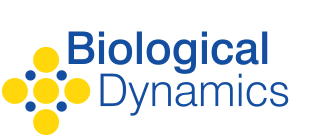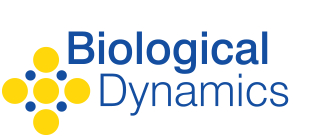SAN DIEGO--(BUSINESS WIRE)--Biological Dynamics, Inc., a leader in exosome-isolation technology for early disease detection, and the Pancreatic Cancer Early Detection (PRECEDE) Consortium, an international, multi-institutional group of experts focused on increasing survival rates for pancreatic cancer patients, have signed a multi-year agreement to partner on patient surveillance for early-stage pancreatic cancer using Biological Dynamics’ ExoVita Pancreas Assay, powered by the Verita platform.
Biological Dynamics is PRECEDE’s first liquid biopsy partner, supporting the goal to detect cancer earlier and improve survival rates. The collaboration accelerates enrollment of at least 5,000 patients into Biological Dynamics’ ExoLuminate Study (NCT05625529), a multi-site clinical study designed for individuals with an elevated risk of pancreatic cancer to detect early pancreatic ductal adenocarcinoma (PDAC). The study is intended to validate Biological Dynamics’ ExoVita Pancreas assay for differing high-risk patients.
“PRECEDE is making a dedicated attempt to increase the pancreatic cancer survival rate from 12.5% to 50%,” said Randall Brand, M.D., Site Investigator and Member of PRECEDE Executive Committee, Director of the UPMC Gastrointestinal Malignancy Early Detection, Diagnosis and Prevention Program and Professor of Medicine at the University of Pittsburgh School of Medicine. “To realize this goal, we need to transform our ability to detect pancreatic cancer early, which is why we are very excited about entering into this collaboration.”
Currently, pancreatic cancer is the third deadliest cancer in the U.S., with a 5-year survival rate of just 12.5%.1 It is predicted that over 64,000 new cases will be diagnosed in 2023 alone.1 The earlier pancreatic cancer is diagnosed and treated, the better the prognosis. Unfortunately, pancreatic cancer usually shows little or no symptoms until it has advanced and spread. As a result, it is often diagnosed in stages III or IV, leaving patients and clinicians with limited treatment options and lowering chances of survival.
“In order to go from a 12.5% survival rate to a 50% survival rate within five years, the answer will lie in significantly improving surveillance and accelerating detection of pancreatic cancer at stages I or II with a blood-based assay like ExoVita Pancreas,” said Harmeet Dhani, M.D., M.Sc., Principal Investigator for the ExoLuminate Study and Medical Director at Biological Dynamics. “This engagement has the potential to move the needle by accelerating our ExoLuminate Study and demonstrating the value of our advanced technology.”
“We’re thrilled to work with PRECEDE to advance our shared goal of increasing pancreatic cancer survival rates and to further clinically validate the Verita platform and ExoVita assay for detecting cancer earlier using a new generation of exosome-based biomarkers and technology,” said Paul R. Billings, M.D., Ph.D., CEO and Director of Biological Dynamics.
ExoVita Pancreas is powered by Biological Dynamics’ Verita platform, which targets and isolates blood-based exosomal protein biomarkers, enabling high-sensitivity detection of cancer in its early stages. This is especially important for patients with an elevated risk of pancreatic cancer. High-risk factors include genetic mutations, strong family history, the presence of cystic lesions in the pancreas or pancreatitis. Early-stage detection provides the best treatment options for improving and prolonging a patient’s life.
Learn more at: www.exoluminate.com.
About Biological Dynamics
Biological Dynamics, Inc., is a leader in exosome-isolation technology committed to improving global health outcomes by identifying early-stage disease. Its Verita™ platform offers a simple and automated workflow to enrich for exosomes, powering advanced detection tests for some of the most challenging diseases. Biological Dynamics’ ExoVita™ assays utilize the Verita platform to enable reliable surveillance and early cancer detection to help enhance and extend lives. The Company operates a CAP-accredited, CLIA-certified clinical laboratory in San Diego, California. Learn more at www.BiologicalDynamics.com.
About the PRECEDE Consortium
Founded in 2018, The PRECEDE Consortium’s mission is to increase the survival of patients diagnosed with pancreatic cancer from 10% to 50% in the next 10 years. This highly collaborative international effort includes partnerships with top researchers, industry and academic institutions, survivors, and families. Each partner is dedicated to improving early detection, screening, risk modeling, and prevention of this potentially devastating disease. The largest endeavor of its kind, PRECEDE aims to more accurately define who is at risk, determine at what level, and enroll them in state-of-the-art screening programs. Together, we can help put an end to pancreatic cancer. For information go to precedestudy.org.
References:
- Cancer Stat Facts: Pancreatic Cancer. National Cancer Institute. https://seer.cancer.gov/statfacts/html/pancreas.html. Accessed August 31, 2023.





